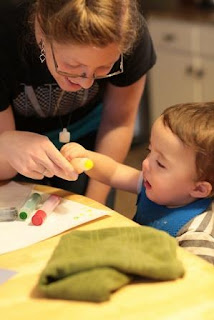Business with the Babysitter
Nora Rhoades, Family & Youth Development Agent
Hiring a babysitter to care for your child over a short period of time is common practice. A trustworthy babysitter allows parents and guardians more flexibility to run errands, go on a date, and be more involved in the community. Whether your babysitter is a teenager new to the business or an experienced adult, it is important to leave your care provider with the information necessary to respond to an emergency, meet each child’s unique needs, and maintain your family’s schedule.
First off, you’ll want to make sure the babysitter has contact information for you and your partner. This includes home, work, and cell phone numbers. Discuss your outing destination and expected time of return. It is also recommended to share the contact information for your neighbors as well as for another emergency contact. The emergency contact should be a reliable and accessible adult who can assist with a situation in the event you cannot be reached.
 |
| “Photo credit:http://bit.ly/1MpWzgp” |
Additional emergency numbers like 911, medical personnel, and poison control should be communicated. If your family doesn’t have a landline, consider leaving a cell phone home with the care provider. In the event of an emergency, the babysitter will need to be able to communicate to medical personnel where they are located. Don’t assume the care provider knows your address by heart.
Regardless of the length of your departure, make sure to explain your family’s emergency plan with the care provider. Your family’s plan will assist the babysitter while working through experiences like temperature extremes, severe storms or a fire. Review your home’s identified fire exits and tornado shelter, the location of emergency supplies, and your disaster communication plan.
It may be helpful to share how and what appliances to use, where home supplies are located (first aid kit, flashlight, plunger, broom, etc.), and details about household security tools (locks, alarms, keys, etc.). Outlining responsibilities and special needs for family pets might need attention, too.
Before you run out the door for your outing, take time to carefully review information that will ensure your child’s unique needs are met and your family’s schedule is maintained. This will make the babysitting experience less stressful for the care provider, your child, and yourself.
Ensure your babysitter is aware of age appropriate food options and preferred preparation techniques, medicine needs, and allergies. Explain activity information like technology limits, trusted playmates, and safe play areas both indoors and outdoors. Does your child have a special routine related to homework, sleep, or mealtime? Is there a security toy or blanket that shouldn’t be overlooked?
Finally, clarify house rules and preferred behavior and disciplinary actions. This will not only make the care provider feel more comfortable supervising your children, but it will also help maintain consistent expectations in your home.
While babysitters are valued resources available to help you make ends meets, it isn’t fair to assume they’re an expert about your home, child, and family’s lifestyle. Take time to discuss valuable information face-to-face with the babysitter in order to keep the needs of your children and family a priority. It is also suggested to leave a written document outlining important information for reference.
The Post Rock District of K-State Research and Extension serves Jewell, Lincoln, Mitchell, Osborne, and Smith Counties. Nora may be contacted at nrhoades@ksu.edu or by calling the office in Osborne 346-2521, Beloit 738-3597, Lincoln 524-4432, Mankato 378-3174, or Smith Center 282-6823. Like “Post Rock Extension” on Facebook and follow us on Twitter. Our website is www.postrock.ksu.edu.







